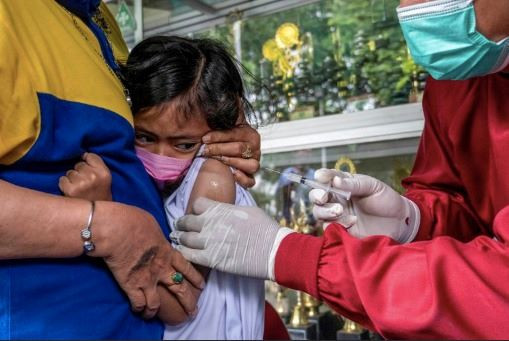Battle for inclusive democracy continues after 20 years of reformasi
In commemorating 20 years of reform, how can Indonesians give meaning to its democracy? What kind of democracy do we envision for the future?
Change Size
 Victory is ours: A visitor looks at photos that depict people jumping for joy after the resignation of dictator Soeharto. (JP/A. Kurniawan Ulung)
Victory is ours: A visitor looks at photos that depict people jumping for joy after the resignation of dictator Soeharto. (JP/A. Kurniawan Ulung)
T
he call to end the authoritarian New Order spilled blood in Indonesia since the early 1990s to 1998, when Soeharto finally quit. Activists, political dissents and people, whose voices were curbed during 32 years, fought for their rights to be heard ever since.
The battle paid off in 2004, when Indonesia had its first democratic national election with Susilo Bambang Yudhoyono as the champion. Since then, more transformation took place in the economy, social, and political life. Such changes have provided us with a plenty of rooms for public aspirations and resulted in the democracy that we enjoy today.
Democratization is an enduring project to begin with. The fight for a fair and just democracy continues. Freedom of expression is often mistakenly used to put forth a particular group’s interest at the expense of others. In highly diverse Indonesia, identity politics is pervasive and continuously used as a political tool to garner support and mobilize people into achieving a particular agenda.
BJ Habibie, Indonesia’s third president, stated that even after 20 years of reformasi, the politics of identity still has its grip on the country. It reached a new high after the 2017 Jakarta gubernatorial election.
The blasphemy scandal which plagued then governor Basuki “Ahok” Tjahaja Purnama, a Christian of Chinese descent, was a test to longstanding pluralist and tolerant values prided by many Indonesians.
While Indonesia recognizes freedom of speech, the laws also set confusing limitations, most infamously the 1965 Blasphemy Law. While the rights to freedom of expression and freedom of thought, conscience, or religion are protected under the Constitution and under international human rights conventions which we have ratified, the 1965 law threatens people with a maximum 5-year imprisonment for committing blasphemy and/or defamation, which are extremely subjective and loose in definition. The Blasphemy Law, combined with the 2008 Information and Electronic Transactions (ITE) Law, has been rather effective in suppressing criticism and opinions, especially from minority and marginalized groups.
Democracy in Indonesia should become a basis to integrate all elements of society into the decision-making process. It is the responsibility of all Indonesians to support policies to accommodate the rights of the minority. In the economic realm, we use our civil rights to demand our government for more inclusive economic policies.
To support efforts to narrow inequality, people should participate more in politics aimed at providing alternative source of income to all people in need. All in all, our democracy should interconnect all aspects of our society because they all matter.
We shall not forget the long battle to democracy and should always seek for improvements. In commemorating 20 years of reform, how can Indonesians give meaning to its democracy? What kind of democracy do we envision for the future?
While there is no guarantee that everything would instantly become better, giving too many privileges to one group in an extremely diverse society is the formula for chaos. Identity politics in the form of growing Islamic influence in Indonesian politics has led to heightened religious tensions over and over again; something that would be much less likely to take place in a secular nation unified by healthy nationalism.
I hope Indonesia will come out of these chaotic times more tolerant and respectful; and return to its pluralist roots and do away with the religious divisiveness that has kept the people apart for far too long.
***
The writer is a research assistant at the ASEAN Studies Center, Gadjah Mada University (UGM), Yogyakarta.








